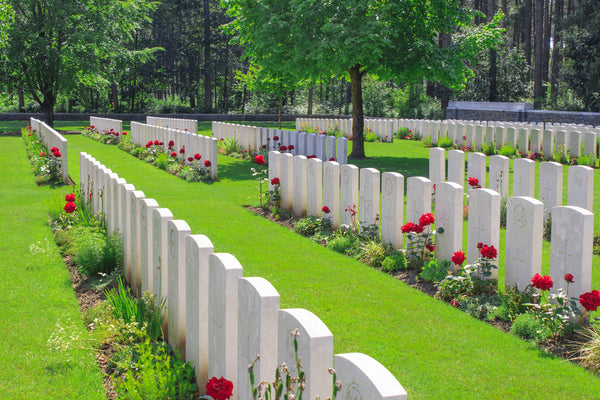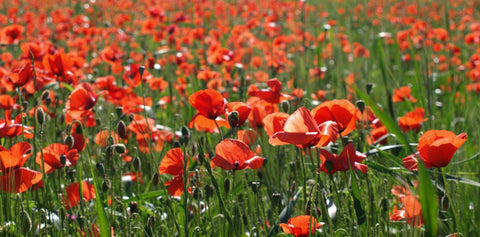Emotional...

I get emotional this time of year, every year. Trying to figure it out, I think the emotion comes from feeling the loss of innocence that so many have experienced. It may be empathy for those who lost a loved one, or the dysfunction a family experiences as a result of a returning soldier's wounds, physical, emotional or both.
I am in my late fifties, and part of a generation whose fathers and grandfathers fought and some of us know, first hand, the pain felt and pain expressed through actions at home. But I also have a great deal of gratitude and appreciation for all that I am free to do, to think, to say, the safety I have, the democracy I have (needs improvements on a number of levels), but still proud of the heritage. I am proud to be from a province that legislated Remembrance Day to be a statutory holiday and on that note, I am also proud of our provincial government who, a number of years ago, passed legislation into law which requires its citizens to respect a passing funeral procession by pulling their car over to the shoulder of the road and wait.
War is not a good thing, killing a fellow human being is not a good thing, evil is not a good thing but it does need to be stopped, as it was in the two World Wars and the Korean War. This is not a post about present day threats or policy, it is a post about respect.
Either at home, at work, or at cenotaphs in various communities, coast to coast, tens of thousands of Canadians on November 11th, at 11am stand in silence and give a day of national commemoration for the more than 100,000 Canadians who have died in military service.
For a few weeks, prior to this day, The Royal Canadian Legion seeks support through its annual poppy campaign, and all funds raised are held in public trust and used only to support veterans and their families as well as citizens of local communities. I encourage you to support this cause.
The poppy is the recognized symbol of remembrance for war dead in Canada, the countries of the British Commonwealth, and the United States. The flower owes its significance to the poem "In Flanders Fields", written by Major (later Lieutenant-Colonel) John McCrae, a field surgeon in the Canadian artillery, in the midst of the Second Battle of Ypres, Belgium, in May 1915.
The poppy references in the first and last stanzas of the most widely read and oft-quoted poem of the war, contributed to the flower's status as an emblem of remembrance and a symbol of new growth amidst the devastation of war.

In Flanders fields the poppies blow
Between the crosses, row on row,
That mark our place; and in the sky
The larks, still bravely singing, fly
Scarce heard amid the guns below.
We are the Dead. Short days ago
We lived, felt dawn, saw sunset glow,
Loved and were loved, and now we lie
In Flanders fields.
Take up our quarrel with the foe:
To you from failing hands we throw
The torch; be yours to hold it high.
If ye break faith with us who die
We shall not sleep, though poppies grow
In Flanders fields.
To learn more about the Poppy Campaign, you can visit Charlottetown's Royal Canadian Legion's site.


Comments
Paula Mueda said:
Thank you for your lovely blog, Bruce, and the wonderful poem “In Flanders Fields,” which always evokes emotion and a strong feeling of nationalism. We owe so much to those who have gone before us who have fought for our freedom, here in the US and in Canada. We can never repay them for the sacrifices they gave in their lives so that we might continue to have freedom in ours. Blessings to you and yours.
November 12, 2019
Kim said:
I, too, get emotional on Remembrance Day. Every year, I attend the service in my town and I have always brought my daughter with me from the time she was very young. We would seek out a veteran and thank him. This year, I spoke with a dear lady who joined the military in WW2 to “be closer to her husband”. I couldn’t stop my tears. “We will remember them.”
November 11, 2017
Debbie Reid said:
Thank you Bruce for your wonderful blog about Remembrance Day. All a Veteran wants is to be remembered. We Will Remember Them.
November 11, 2017
June Erlandson said:
My grandparents collectively had 5 stars in their windows during WW2. My 5 uncles came home & always remembered & taught me about those who did not came home. Home of the free because of the brave. Your post spoke my ❤️
November 11, 2017
Maxine said:
Thank you Bruce. Love your thoughts and the spirit behind them. Thank you for the History lesson this morning!
November 11, 2017
zuzu said:
I like knowing how others feel about Memorial Day and the ways it should be observed. I’m finding I like the idea of poppies being used to such an extent in Canada and wish the US would put more emphasis on that symbol for the day. I think it would give it the distinction it needs here to separate it’s meaning from Veteran’s Day. Thank you for this post and the explanation of the poppies in the field.
January 30, 2016
Christine said:
Such a lovely post and everything you write is true. I get emotional too.
I enjoy your musings and have been visiting your site ever since our trip to PEI two Septembers ago. The Preserve Company was one of our most memorable stops. So lovely.
December 10, 2015
Ann Franz said:
I just read your musings. I always get emotional at holidays and it made me feel better as we have problems within our family, which it is small enough . I was brought up with many people around during holidays and we miss it.
November 17, 2015
Diane said:
Thank you for your musings Bruce
Just lovely
Diane
November 10, 2015